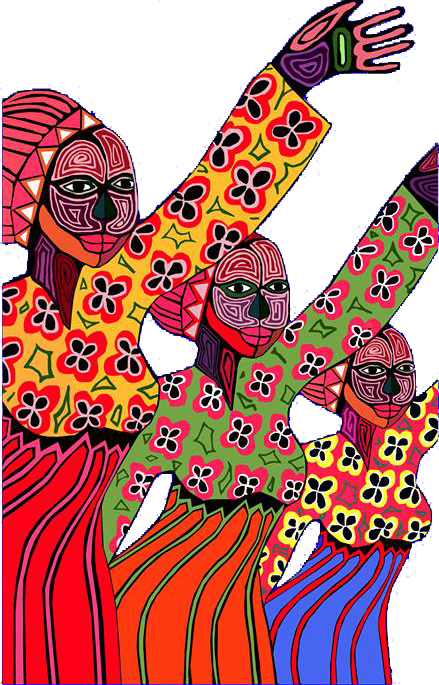Washington, D.C., 7 de septiembre de 2011 – La Comisión Interamericana de Derechos Humanos publica hoy el Informe sobre Justicia Juvenil y Derechos Humanos en las Américas, el cual identifica los estándares internacionales de derechos humanos que deben ser observados por los sistemas de justicia juvenil en las Américas.
La Comisión señala en el informe su preocupación por las debilidades de los sistemas de justicia juvenil, debido a la distancia entre el discurso y la realidad que enfrentan los niños, niñas y adolescentes acusados de haber infringido la ley penal en la región. En este informe, la Comisión analiza cómo, con excepción de algunos pocos ejemplos de buenas prácticas, los sistemas de justicia juvenil del continente se caracterizan por la discriminación, la violencia, la falta de especialización y el abuso de las medidas de privación de libertad.
En el informe, la Comisión exhorta a que los Estados tiendan a abolir la pena privativa de la libertad aplicada a niños, niñas y adolescentes y hace recomendaciones orientadas a fortalecer las instituciones, leyes, políticas, programas y prácticas relativas a la justicia juvenil en la región.
Para la realización de este informe se llevaron a cabo visitas a diversos países de la región, se consultaron fuentes gubernamentales, no gubernamentales y académicas, se organizaron consultas regionales y se elaboró un cuestionario que fue respondido por Gobiernos, representantes de la sociedad civil y expertos. La CIDH agradece a los Estados miembros y a los miembros de la sociedad civil su colaboración para la realización de este informe, cuya elaboración fue posible a través de la firma de un memorándum de entendimiento entre la CIDH, la Oficina Regional para América Latina y el Caribe del Fondo de las Naciones Unidas para la Infancia (UNICEF) y la Oficina de la Alta Comisionada de las Naciones Unidas para los Derechos Humanos (OACNUDH). Asimismo, se recibió el apoyo financiero del Banco Interamericano de Desarrollo (BID), la organización Save the Children-Suecia y Luxemburgo. La Comisión también desea reconocer la cooperación de la oficina de la Representante Especial de la ONU sobre la Violencia contra los Niños.
La CIDH es un órgano principal y autónomo de la Organización de los Estados Americanos (OEA), cuyo mandato surge de la Carta de la OEA y de la Convención Americana sobre Derechos Humanos. La Comisión Interamericana tiene el mandato de promover la observancia de los derechos humanos en la región y actúa como órgano consultivo de la OEA en la materia. La CIDH está integrada por siete miembros independientes que son elegidos por la Asamblea General de la OEA a título personal, y no representan sus países de origen o residencia.
Enlaces Útiles
Informe Justicia Juvenil y Derechos Humanos en las Américas (html y PDF)
IACHR PUBLISHES REPORT ON JUVENILE JUSTICE AND HUMAN RIGHTS IN THE AMERICAS
Washington, D.C. , September 7, 2011—The Inter-American Commission on Human Rights (IACHR) today is publishing its Report on Juvenile Justice and Human Rights in the Americas , which identifies international human rights standards that should be observed by juvenile justice systems in the Americas .
In the report, the Commission expresses its concern over the weaknesses of the region’s juvenile justice systems, due to the gap between rhetoric and the reality faced by children and adolescents accused of breaking the law. The Commission analyzes how, with the exception of a few examples of best practices, the hemisphere’s juvenile justice systems are characterized by discrimination, violence, a lack of specialization, and the abuse of measures involving deprivation of liberty.
In the report, the Commission urges the States to move toward abolishing prison sentences for children and adolescents, and makes recommendations designed to strengthen the institutions, laws, polices, programs, and practices having to do with juvenile justice in the region.
To produce this report, the IACHR carried out visits to various countries in the region; consulted governmental, nongovernmental, and academic sources; organized regional consultations; and prepared a questionnaire, which was filled out by governments, civil society representatives, and experts. The IACHR thanks the Member States and civil society members for their cooperation in preparing this report, an effort made possible thanks to the signing of a memorandum of understanding between the IACHR, the Regional Office for Latin America and the Caribbean of the United Nations Children’s Fund (UNICEF), and the Office of the United Nations High Commissioner for Human Rights (OHCHR). The IACHR also received financial support from the Inter-American Development Bank (IDB), the organization Save the Children-Sweden, and Luxembourg . The Commission would also like to recognize the cooperation of the office of the UN Special Representative on Violence against Children.
A principal, autonomous body of the Organization of American States (OAS), the IACHR derives its mandate from the OAS Charter and the American Convention on Human Rights. The Inter-American Commission has a mandate to promote respect for human rights in the region and acts as a consultative body to the OAS in this matter. The Commission is composed of seven independent members who are elected in an individual capacity by the OAS General Assembly and who do not represent their countries of origin or residence.
Useful links
Report Juvenile Justice and Human Rights in the Americas (html and PDF)
(The report is only available in Spanish at the present time; an English version will be available in the future)
